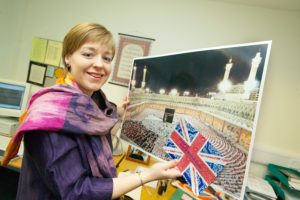
The value of both confessional and non-confessional approaches to teaching and learning about Islam
The Muslim populations of most Western societies have grown over the last two decades as a result of immigration and conversion to Islam. This has drastically changed the landscape in which teaching and learning about Islam now occurs, presenting new challenges and opportunities both within and beyond academe. One of these challenges is the apparent need to bridge the gap between the confessional and non-confessional study of Islam.
Confessional studies, certainly in the UK, are largely accommodated within Islamic seminaries or darul uloom (meaning ‘house of knowledge’). They are concerned with the cultivation of piety and the formation of ‘scholars’ who embody the scriptures and texts they are learning, often by heart. This world of learning is often termed ‘traditional’ by Muslim scholars, with the word ‘traditional’ carrying implications of its supposed authenticity. Non-confessional study of Islam, typically undertaken in university departments, often focuses upon textual, linguistic, anthropological, and historical approaches to the Islamic tradition. The skills of critical evaluation acquired though these disciplines produce ‘academics’.
In the UK over the last decade, there have been concerted efforts on both ‘sides’ to work towards greater collaboration between ‘scholars’ and ‘academics’ in the field of Islamic Studies, certainly in Britain. The seminaries are beginning to recognise that their graduates need to acquire ‘employability skills’ and validated qualifications that have currency in the world of higher education. Universities recognise that the sustainability of the discipline may need to involve greater conversation with local Muslim communities in order to remain relevant and engaged. And there is of course an agenda bound up with counter-terrorism and Muslim community leadership driving the push towards collaboration.
This context means that there is an important group of new academics, currently relatively few in number, who need to be supported. Seminary-trained Muslim ‘scholars’ (of both genders) who go on to acquire higher degrees in Islamic Studies to become university ‘academics’ are able to span the world of confessional and non-confessional learning. They can move seamlessly, and with complete integrity, from assisting with an Islamic study-circle or halaqa in a local mosque, to an undergraduate seminar on campus.
The Islam-UK Centre at Cardiff University is actively supporting this new group of British Muslim academics, and this means that they join another group of established staff in the Department of Religious & Theological Studies. Cardiff University has a historic partnership agreement with the Anglican Church in Wales and South Wales Baptist College, so that staff from these two Christian theological colleges teach on our BA in Religious & Theological Studies programme. Muslim staff who have undergone ‘traditional’ religious study have formed relations of mutual respect and synergy with ordained and licenced Christian staff who also bring confessional identities to their teaching.
But what about the audience or the ‘customers’ ...the students? Over 20 years of teaching about Islam in the contemporary world as part of our undergraduate programme, I have seen students (mostly Welsh, both with and without religious convictions of their own) relish the opportunity to hear intelligent, ‘authoritative’, confessional perspectives about the Islamic tradition. They want to know “what it really means” to wear a hijab in 21st century Western society, but also how this practice is situated within classical scripture and historic cultural traditions. They want to gain some sense of Muslim ‘worldviews’. Textbooks are a poor substitute for a nuanced and personal explanation by an ‘insider’ who can situate their experiences within an appropriate academic context. In a world where graduates are often required to show respect for, and appreciate how multiple perspectives and understandings can exist about a particular practice, belief, or identity, the diversity of the teaching team gives them an example of how this might operate in wider society. Students who themselves draw upon a range of identity repertoires - depending on their context or company - recognise and value the educative experiences and identities of their teachers likewise. This has created an opening for classically-trained Muslim ‘academics’ to diversify teaching and learning teams in Islamic Studies. They are bringing their own confessional worldviews into a new and potentially transformative conversation with the discourses Islamic Studies in higher education. Watch this space!